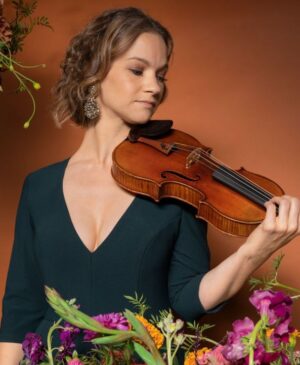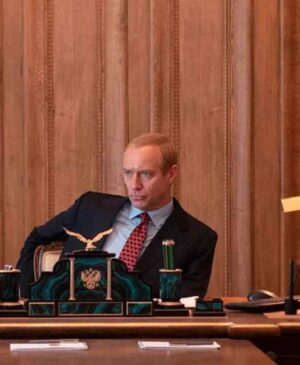MOVIE REVIEW – In Netflix’s latest offering, the main star from the Stranger Things saga stands out as a courageous and resolute princess in a narrative that, while familiar and mildly tinged with horror, unfortunately doesn’t manage to elevate itself beyond its formulaic roots. “Damsel” ambitiously flips the script on the conventional fairy tale elements with a feminist lens, yet Millie Bobby Brown’s commendable performance is one of the few aspects that injects some semblance of light into an otherwise dim setting.
The landscape of feminist fairy tales isn’t new territory, and “Damsel” struggles to carve out a unique space among the age-old narrative of “happily ever after.” Targeting a younger audience, the film experiments with role reversals, sporadic narrative pacing, and introduces a strong female protagonist through Millie Bobby Brown’s portrayal. Directed by Juan Carlos Fresnadillo and released by Netflix on March 8, the film feels like a decent attempt but lacks a critical ingredient; it starts with promise but gradually loses its way, reminiscent of wandering through a diluted version of Game of Thrones’ maze, diminishing its momentum and cohesion.
A Slow, Somewhat Kitschy Opening
Set in a distant realm, Princess Elodie (Brown) and her spirited sister, Floria (Brooke Carter), toil to sustain their kingdom’s populace. Despite accumulating ample wood, they fail to alleviate their homeland’s misery. Returning from labor one day, Elodie learns of her father’s (Ray Winstone) pact with a distant realm, Aurea: her hand in marriage to its prince in exchange for the gold that could end their people’s suffering. Longing for adventure like her late mother, yet selflessly agreeing to the arrangement, Elodie, accompanied by her family, sets off towards Aurea.
Damsel’s centuries-old introduction depicts a king and his knights facing a formidable dragon in a cave’s depths. Upon arriving at Aurea’s mist-enshrouded gates, Elodie and her party are greeted by two fearsome, fire-breathing dragon statues. Inside, the realm shines brightly: sun-kissed, affluent, filled with golden carriages, succulent fruits, and lavish attire. Queen Isabelle (Robin Wright) warmly welcomes them, soon introducing Elodie to her future husband, Henry (Nick Robinson), who quickly takes a liking to his betrothed. Henry’s wish to explore beyond his kingdom’s borders leads to a spontaneous horseback ride through the surrounding hills and valleys, captured with excitement and emotional depth by Fresnadillo, showcasing a world of freedom, adventure, and unspoken passions.
Despite the ominous statues, Isabelle’s slightly artificial demeanor, a private conversation with King Winstone that unsettles him, and Henry’s peculiar glances, Damsel doesn’t hide that something is amiss in Aurea. Yet, the film dedicates a significant portion to this setup, leading to increasingly tiresome outcomes. The narrative perks up with Elodie and Henry’s wedding, and later, when Henry takes her to a mountain enclave for an ancient ritual to ensure the kingdom’s safety, which primarily involves mixing their blood and Henry casting his bride into a dark, terrifying abyss. Alone and frightened, Elodie realizes – albeit not as quickly as the audience – that she is the latest offering to the wrathful dragon, allegedly willing to coexist with humans if such royal sacrifices are made.
Dragon-Filled Survival Horror
In this dark depth, Elodie’s desperate flight from the pursuing dragon, voiced by Shohreh Aghdashloo, mirrors a predator’s chase. Clues and remnants along her path suggest others have attempted this escape, and discovered passages allow her to cleverly evade the beast. Not just a skilled warrior, Elodie’s agility and a chance encounter with healing fireflies, serving as a magical lantern, highlight her resourcefulness and resilience. However, the cat-and-mouse chase, depicted with overly apparent green-screen effects, detracts from the narrative’s believability.
Damsel expands on traditional tales with a predictable twist, portraying Elodie’s struggle to protect herself, her loved ones, and her people, transforming her elegant wedding attire into survival gear. Yet, this doesn’t excuse illogical story elements, such as a cave map leading to freedom (left by a previously unsuccessful princess?), centuries-old preserved corpses, or rescuers risking their lives without evidence of Elodie’s survival, along with magical, unexplained visions aiding her escape.
While films need not adhere strictly to reality, such disregard for detail, seemingly based on directors Juan Carlos Fresnadillo and writer Dan Mazeau’s assumption that younger audiences won’t notice plot inconsistencies while parents are just glad for a distraction, is inexcusable and unacceptable.
Woke Me Up?
By reversing established fairy tale dynamics and pushing a familiar woke narrative, Damsel presents a timid, cowardly prince, a supportive stepmother contrary to traditional roles, and a dragon as a suffering victim akin to Elodie. This approach, over two decades since Shrek’s innovative take on fairy tale clichés, feels less fresh and groundbreaking, with the typical woke message peppered with “girl power” becoming tiresome. Fresnadillo’s direction in action scenes, tailored for a younger audience, fails to truly capture a life-or-death struggle around Elodie, rendering the story predictable and lackluster.
Despite Millie Bobby Brown’s committed portrayal of the brave and true Elodie, the film falls short of leveraging the potential that has followed her since Stranger Things. The presence of Ray Winstone, Angela Bassett, and Robin Wright fails to salvage this project, lacking the grandeur and originality that could have made it memorable. Elodie’s depiction as a cornered survivor, although a promising concept, quickly runs out of steam, leading to a highly foreseeable conclusion that merely reinforces its status as another formulaic, sentimental tale.
Despite Millie Bobby Brown’s dedicated portrayal of the valiant and genuine Princess Elodie, the film falls short of harnessing the potential that has been associated with her since Stranger Things. The presence of Ray Winstone, Angela Bassett, and Robin Wright does little to rescue this endeavor from mediocrity, lacking the greatness and originality that could have made it memorable. Elodie’s depiction as a cornered survivor, although an intriguing premise, quickly loses momentum. The narrative ultimately meanders towards the most predictable of endings, thereby reinforcing its status as merely another formulaic, sentimental tale, despite its purported progressivism.
-Herpai Gergely (BadSector)-
Damsel
Direction - 5.6
Actors - 6.2
Story - 4.8
Visuals/Music/Sounds - 7.6
Ambience - 6.2
6.1
FAIR
"Damsel" attempts to wrap itself in the cloak of contemporary fairy tales, yet fails to deliver significant novelty despite Millie Bobby Brown's fairly decent (though not groundbreaking) performance standing out. The effort to rethink character roles and introduce fresh twists is insufficient to offset the narrative shortcomings and implausible scenes. The film ultimately remains an easily digestible, but quickly forgettable tale, primarily offering temporary entertainment to a younger audience.

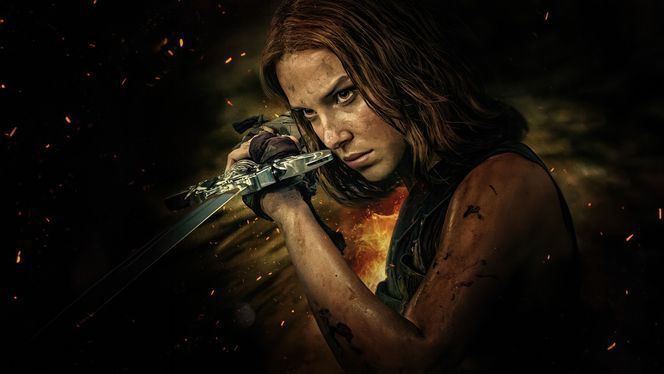
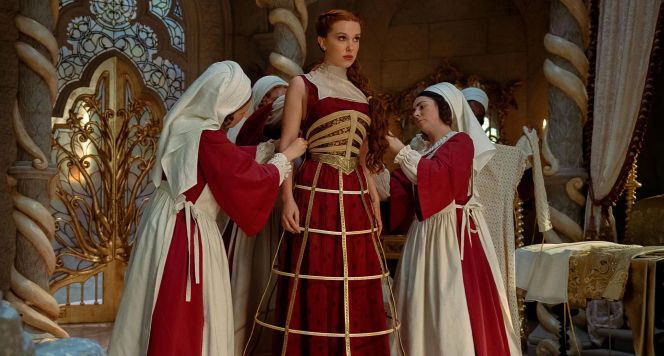

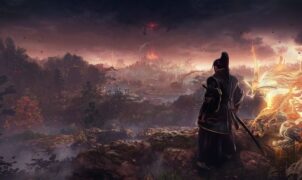







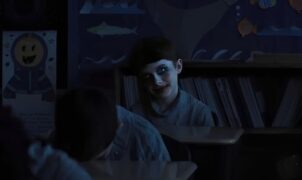

![[TGA 2025] Star Wars: Galactic Racer Focuses on High-Stakes Podrace Runs [VIDEO]](https://thegeek.games/wp-content/uploads/2025/12/theGeek-Star-Wars-Galactic-Racer-300x365.jpg)

